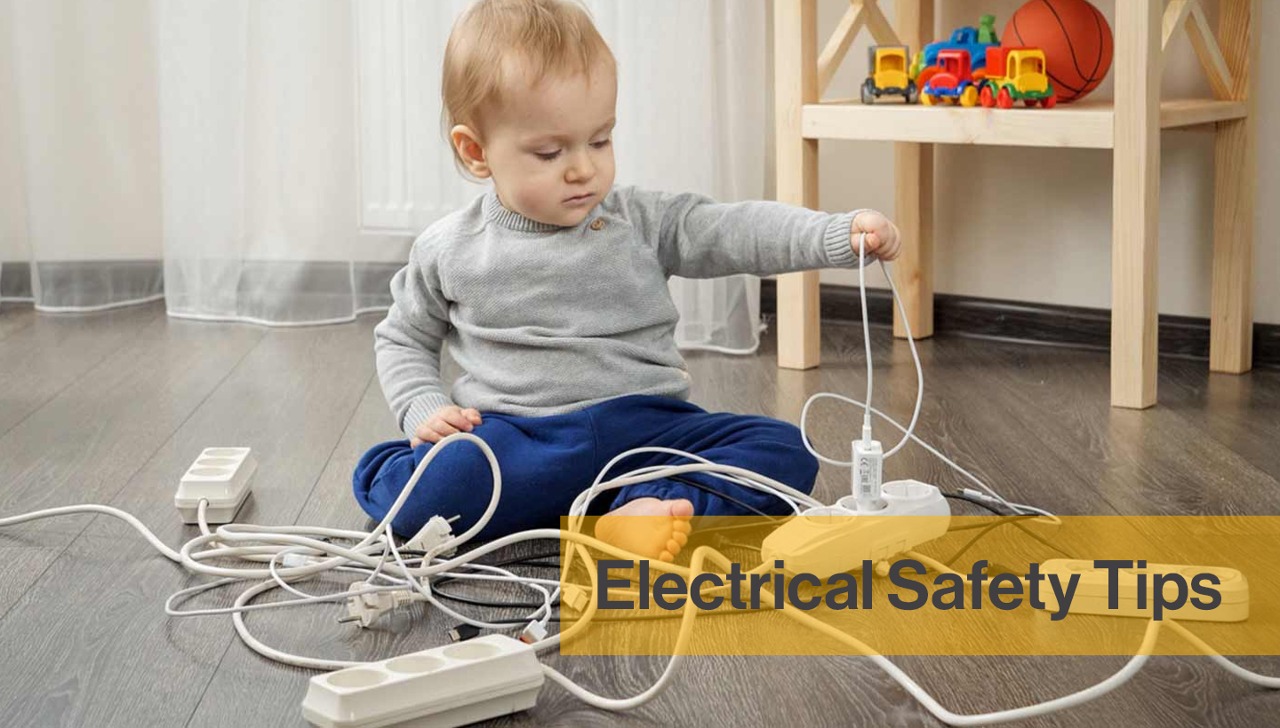

Enquiry Now



Enquiry Now


Electrical safety is important at home and in the workplace because electricity is powerful and dangerous. Careless handling of electricity can result in serious injuries and death. Following safety protocols reduce the risks of the two major hazards of electricity - arc flash and shock. Arc flashes can cause burns, blindness, and hearing loss while shocks can cause cardiac arrest, thermal burns, and muscle and nerve destruction.
However, a few important electrical safety tips and precautions including regular maintenance, proper outlet usage, safe use of electrical appliances, proper storage of flammable materials, etc. can significantly reduce the risks of injuries. Here is a discussion about the top 10 important electrical safety tips.
It refers to all practices, precautions, and guidelines used to protect against electrical hazards. It involves proper installation and maintenance of electrical systems and appliances. Electrical safety in the workplace includes adherence to safe usage practices and relevant codes and regulations. It aims to promote a safe environment at home and in the workplace.
Conduct regular electrical safety inspections to identify issues such as degraded wires and components, overloaded electrical circuits, lack of earthing, etc., and address them.
You should make sure all outlets are in proper working condition and are not overheated. It is better to avoid multi-outlet converters.
Damaged power cords are dangerous and can cause fires. Check cords for cracking. Replace or repair frayed and cracked cords immediately.
Make sure that electrical sources and equipment are at least 5 feet away from water. Your hands should be dry while handling electrical appliances.
Install child proof electrical socket covers on all outlets to prevent kids from inserting metal objects inside the outlet that can result in shocks.
Fire extinguishers should be easily accessible. Install warning signs and cautions wherever needed. You should be familiar with your switchboards.
You should hire qualified electrical technicians for electrical work. Proper handling, installation, and repairs will reduce the risks of electrical accidents.
Avoid using damaged cords and appliances. Unplug appliances when not in use. Follow the manufacturer’s instructions while using electrical equipment.
Employees and family members should be properly trained on fire safety protocols, recognition of potential risks, and how to respond in case of an emergency.
You should store flammable materials and liquids away from electrical outlets to avoid the risk of accidental fires and explosions.
Follow the safety tips to ensure your home and workplace are free of electrical accidents. Enroll your workforce in an accredited Electrical safety training course. Enroll in Electrical Design Training in Arabian Infotech, the best institute that offers courses in HVAC training , firefighter training, etc. to gain theoretical and practical knowledge. To prioritize safety in your home and workplace, contact us now.
The 5 golden rules are to disconnect before performing inspection and repairs, ensure there is no voltage, avoid working on energized parts unless necessary, use personal protective equipment, and allow only qualified professionals to work on electrical systems.
The main rule is not to touch any component in a circuit that has a power supply. Turn off the power sources and disconnect the circuit before touching it. This is basic electrical safety.
There are several safety standards related to electrical safety but the most recognized is ISO 45001. It is the international standard for electrical safety.
Discover the essential roles and responsibilities of HVAC technicians in our latest blog! Explore the top five key areas where HVAC professionals play a crucial....
Dive into the five must-have abilities that every plumber should possess to excel in the evolving industry. Stay ahead of the curve and enhance your plumbing expertise with expert insights.
Explore the common mistakes in HVAC design & learn effective strategies to fix the issues. Read Our Comprehensive expert insights on how to optimize..